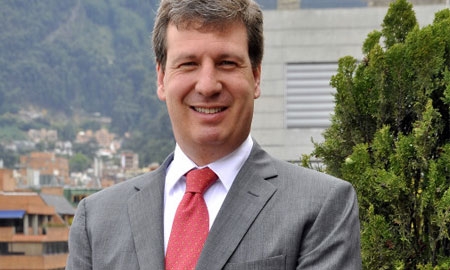Colombia has a very active technological development public policy. Even though this is a government policy, some private businesses have stepped up to the challenge, feeling a responsibility towards Colombia’s development.
In fact, 39 percent of Internet connections made through the government’s Plan Vive Digital are contributed by the mobile phone industry. An industry which has also donated 3.46 billion pesos over the past ten years to an ICT fund that helps to finance social efforts made in the area.
A particularly impressive example of this is Claro, the country’s leading communications company. Claro offers cellphone, landline, television and Internet services and was born as a result of the integration of two companies: Comunicación Celular S.A. and Telmex Colombia S.A
Internet connections have tripled in Colombia in the last two and a half years, reaching 6.2 million. According to Juan Carlos Archila Cabal, the company’s president, this is largely thanks to the fact that Claro has dedicated itself to the task of reaching every corner of the Colombian territory.
“We have brought 3G technology almost to 100 percent of the country’s municipalities, something that hasn’t happened in the rest of Latin America,” explains Mr. Archila.
“This is what has made that number shoot up like it has. Claro has made many efforts to make it so, and we have worked hand in hand with the government to bring broadband to the least favored sectors of society.”
Colombia views the massification of Internet accessibility as a way to promote and develop democratic prosperity. Claro is well aware of the part it plays in that development process and is willing to do whatever it can to encourage it. “We have been engaged with Colombia from the very beginning, even when, for security reasons, investing in certain remote areas of the country was quite a challenge. But thanks to that, we have penetrated almost 100 percent of its territory,” says Mr. Archila.
There are other factors that influence the large rise in cellphone use and Internet connections. For one matter, Colombia has one of the region’s lowest communications charges. “We have made this possible by strongly developing an economy of scales,” explains Mr. Archila. This obviously translates into accessibility and a rise in consumption (called minutes of use).
Colombians use up far more minutes than the people from neighboring countries, in fact, they talk on the phone almost twice as much, according to Mr. Archila: “This has really benefited the users, because it makes communications services more available, even though they entered into Colombia a little late, in contrast with the rest of the region.”
Claro reinvests in Colombia around 70 percent of its net income and takes its social responsibilities very seriously, because the company believes it can help improve the quality of life of the Colombian people. It is the only provider for around 7 percent of the country’s municipalities which other communications companies have no interest in providing services to (as revenue would be very small). For these remote communities, having cellphones, for example, also means more security, because it helps them stay in touch with each other and with the authorities.
Claro also has different programs to encourage sports as a means to a better, crime-free life. They promote culture in different regions of the country and also collaborate with army veterans.
As Mr. Achila explains: “All of the company’s actions are part of a plan to be a development and progress factor in the country. By giving people the chance to communicate, we also improve their life. Our other initiatives are meant to help create a country that can live in peace; a more progressive Colombia.”

0 COMMENTS